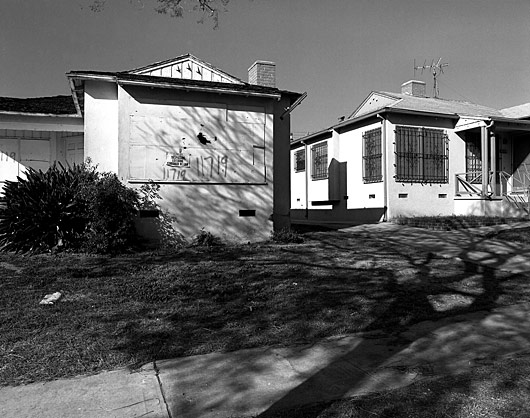 Maria Rutledge
Maria Rutledge
Maria Rutledge had lived in her South Los Angeles home for about 50 years without having to make any major repairs to it. So, naturally, when she realized that her heater’s floor switch was broken, she didn’t think twice about replacing the toggle herself. But a few days before jumping into the project, which is something that even the most lay handyman can accomplish with just one trip to Home Depot, she received a call from L.A.’s Department of Water and Power, who offered to do it for her, free of charge.
“I was skeptical,” she says. “People don’t usually get things for free, and there are a lot [of] scams out there that target the elderly.” So before signing on, she made two phone calls of her own—first she called her husband, and then she called SCOPE. She learned the offer was a legitimate city service called the Home Energy Improvement Program (HEIP) that sends trained electrical and heating technicians to the homes of those who qualify for a free assessment and a range of repairs, usually lower-income folks or elderly residents with fixed incomes.
“These young men showed up and made me so happy,” she says. They checked her pipes in all of the places she’s never even looked, such as the attic and under the house. And they did it with no time to spare: The HEIP staff found that the entire heater had corroded and if Rutledge had attempted to replace the switch and then turn her heater back on, the system was likely to explode into a fire.
“They basically saved my life, as well as the lives of my neighbors,” she says, brimming with emotion. “They removed the old one, repaired it at the shop, and then re-installed it. They also told me that the water heater wasn’t ventilated properly and if I continued to let it run, I could have asphyxiated.
HEIP began two years ago with the intention of giving underprivileged communities the chance to take advantage of energy- and cost-saving measures by assessing heating, plumbing, and lighting systems as well as appliances. But it’s also a job creation program that provides training and a sustainable, healthy career track for folks living in those same communities, in a climate that rarely offers such opportunities.
As a longtime resident of South LA, Rutledge recognized the program for its economic potential as soon as she opened the door to the HEIP technicians. “I could see that these were great young men, and I was glad to see them enjoying these good jobs. I wish more people knew about the program, as a service to the community and as a possible employer as well.” In the past 10 years, SCOPE has partnered with other organizations to promote many similar programs that couple green initiatives with job creation by enlisting the city to invest in services that were in need of overhaul.
For example, in 2006 SCOPE convened the LA Apollo Alliance compelling the city to remodel its municipal buildings, such as the iconic Los Angeles Public Library, with energy saving measures through a Green Retrofit and Workforce program —a long-term project that would provide many jobs for many years. And more recently, SCOPE, LAANE and other allies launched RePower LA urging the city to end its dependence on out-of-state coal, and provide training and job opportunities through a program pioneered by IBEW Local 18 and DWP. Participants in that program learn to make minor home improvements that lower customers’ water and electricity bills while also being trained for future careers at the utility.
Rutledge has been opening her door to the community for decades, starting when SCOPE’s street action team first approached her about getting involved in voter education efforts—efforts she says are SCOPE’s biggest success and strength. “Over the years, I’ve found that people stab themselves in the back at the polls because they don’t vote the right way,” she says.
While SCOPE’s been a positive influence in the community, the work is nowhere near done, Rutledge adds. Elected officials seem to forget South LA when allocating funding for development projects, which has led to a lack of thriving businesses, including department stores, grocery stores, and even hospitals.
“It’s a crime that we don’t have a JC Penny’s or Lowe’s and that our folks have to take a bus to buy decent food,” she says. “What needs to happen in the next 20 years? I dream that someday we have everything we need right here in our community. Not to the west of us. I want to drive down Manchester and Broadway once again and see the mini-Hollywood that was once there.”












